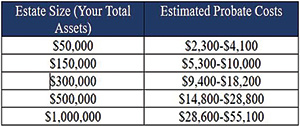 The COVID-19 crisis has not only kept Missourians at home, it is prompting an increasing number of people to establish wills and take care of estate planning. Stay-at-home rules have made this particularly difficult because some states require two witnesses and the appearance before a notary public to execute the document.
The COVID-19 crisis has not only kept Missourians at home, it is prompting an increasing number of people to establish wills and take care of estate planning. Stay-at-home rules have made this particularly difficult because some states require two witnesses and the appearance before a notary public to execute the document.
But a recent change in that requirement by Missouri Governor Mike Parson now enables clients to complete the entire estate planning process from the comfort and safety of their own home without personally appearing before a notary public.
Governor Parson’s Executive Order 20-08 allows for the use of audio-video technology to complete the personal appearance requirement. The order is valid through at least May 15 unless it is extended. Missouri joins Illinois and many other states that have adopted online remote notarization provisions which allow their notaries (and perhaps) witnesses to perform their functions remotely.

Although the circumstances that are making estate planning top of mind are sad, having your affairs in order is important whether there is a pandemic or not, according to St. Louis law firm TuckerAllen, which offers alternatives to in-person meetings.
“We can complete an estate plan in as little as two sessions – the initial consultation and the signing conference. Neither have to be done in person,” says Missy Shands Manning, an estate planning attorney at TuckerAllen. “For those who are not comfortable with video conferencing, or do not have the necessary equipment, we offer initial consultations over the phone to get the information we need to customize our clients’ estate plans.
“In addition to virtual signings, we offer drive-up signings where the client signs the documents in the car where we can see them, as well as social distancing signings, if they prefer to come inside and ask questions to face-to-face. The process is simple and we offer flat rate pricing in these uncertain times. We even offer a 12-month interest-free payment plan in case money is tight right now for clients,” Manning noted.
WHY HAVE AN ESTATE PLAN?
According to TuckerAllen, a proper estate plan will provide for a person’s sickness and incapacity, as well as death.
- A health care power of attorney nominates someone to make health care decisions when you are sick. This includes hiring and firing doctors, moving hospitals, and authorizing or withdrawing medical procedures.
- A general power of attorney nominates someone to make personal and financial decisions when you are incapacitated. This includes paying your bills when you are in the hospital, moving you into or out of a nursing home, and opening your mail.
- A health care directive (also called a “living will”) tells your family and medical professionals whether you want to “pull the plug” or continue to receive life-prolonging treatment if you enter a vegetative state and are unlikely to ever recover.
- A HIPAA waiver tells health care facilities who they may share your protected health care information with. For example, a family member may want to call in and get an update on your health since in person visits are forbidden. These are especially important if a patient has a significant other, a blended family, or family strife.
AVOIDING PROBATE
By setting up an estate plan, people get to choose where their money should go upon their passing instead of letting the state government decide according to its intestacy (inheritance) laws.
A little bit of money now to set up an estate plan will save clients’ families thousands of dollars in the future by avoiding probate, says TuckerAllen’s Manning. Probate is the process where the county circuit court oversees the distribution of a deceased person’s assets.
For more information, contact the TuckerAllen estate and elder law firm at 314-335-1100. The office is located in Kirkwood at 1001 S. Kirkwood Road, Suite 130.


